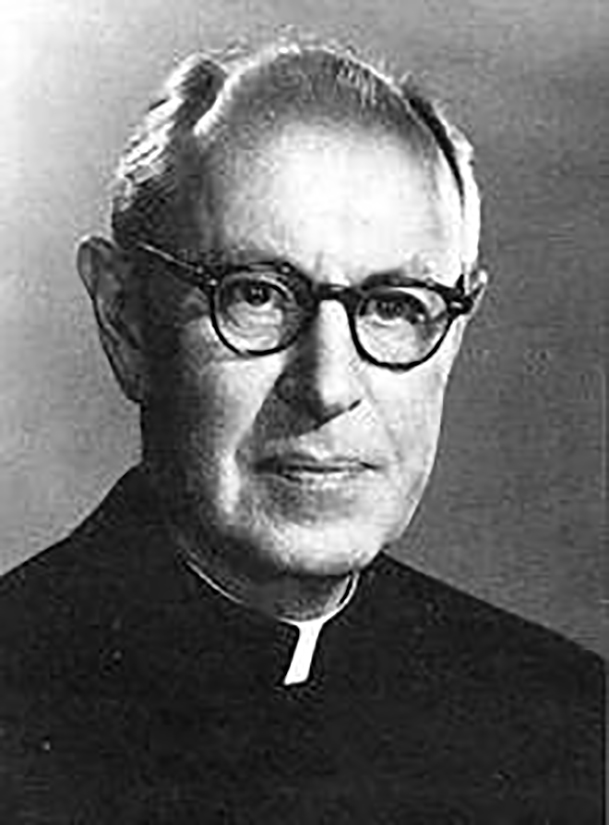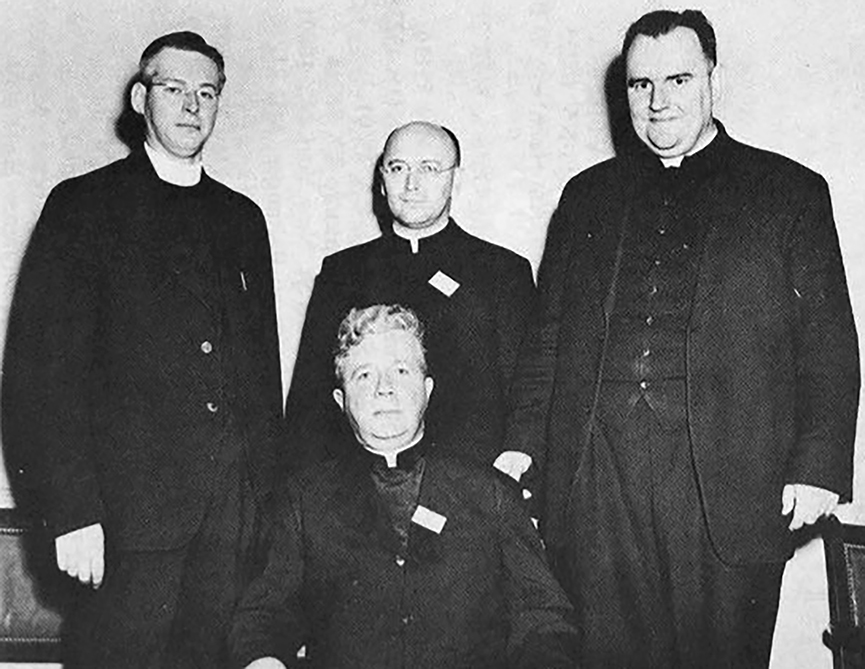This story is featured in the fall/winter 2021 issue of Lumen.
Throughout my time in the St. Thomas Law and Catholic Studies joint degree program, I became fascinated with issues at the intersection of faith and the law.
I became especially aware of a cultural trend of growing disdain for Americans who hold to traditional religious values and the growing threat to undermine their religious liberty rights. Little Sisters of the Poor fighting for the ability to refuse to provide contraception to employees is just one of many examples of this trend.
This led me to take up the issue of the First Amendment for my master’s essay. I wanted to analyze the American understanding of religious liberty through the lens of Catholic thought. I wanted to know whether American religious liberty is a good thing from a Catholic perspective.
The Catholic Church has contributed a great deal to the understanding of religious liberty throughout history. The Church recognizes the Incarnation of Jesus as the fulfillment of the Hebraic idea that humans are made in the image and likeness of God and are endowed with immeasurable dignity. This became the foundation for the Church’s argument that humans should not be coerced to act against their religious beliefs. The Church was also the first institution to recognize a fundamental difference in the jurisdiction of the religious and secular powers.
I applied these principles of religious liberty to the American understanding of religious liberty by examining the thought of two influential 20th-century Catholic theologians, John Courtney Murray and Clifford Fenton. They come from the same faith background yet come to wildly different conclusions on whether American religious liberty is a good thing.

Murray makes the case that the First Amendment is a proper outgrowth of the Catholic understanding of the dignity of the human person. Because humans are created in the image and likeness of God, they should not be coerced into accepting faith and the First Amendment protects against such coercion. In addition, he argues that it properly recognizes the separate jurisdictions of religious and secular powers. He notes that the primary criterion for a good law is that it preserves the public peace. In our republic – that since its foundation has had a multiplicity of religious denominations – the First Amendment has done a remarkable job at maintaining peace.
Fenton sees things differently. He claims that the First Amendment fosters a mindset that humans have no obligation to obey divine law and that, therefore, any form of belief is pleasing to God. Fenton also argues that government has an obligation to recognize the Catholic Church as the one true Church of Jesus Christ. By not allowing for this recognition, the First Amendment prevents the Church and the state from existing in right relationship with one another.

Through my research, I concluded that Murray’s arguments are ultimately more compelling because he applies Catholic thought to the principles of the First Amendment more accurately than Fenton does. Murray would hold fast to the idea that each person has an obligation to pursue the fullness of truth ultimately found in the Catholic Church. However, he also recognizes that the dignity of the human person prevents individuals from being coerced into religious practice. Murray holds that the First Amendment does not allow for unfettered freedom of religion or make a claim that any form of belief is pleasing to God. Rather, it simply does not allow the government to dictate how individuals practice their religion beyond what is necessary to keep public peace. Therefore, the First Amendment allows for the pursuit of truth without any coercion.
Additionally, Murray recognizes that simply acknowledging the Catholic Church as the one true Church of Jesus Christ does not create a proper relationship between the Church and the state. He notes that there are many societies throughout history in which Catholicism has been the official state religion and yet this has not always ensured that the Church’s rights were respected. Moreover, the privilege that comes with state establishment of religion can taint the place of the Church in society with earthly power, putting the Church’s divine mission at risk. The First Amendment gives the Catholic Church a great deal of freedom, while not providing undue benefits from the state. In this way the First Amendment is an outgrowth of the Catholic idea that while the jurisdictions of the Church and the state are ultimately intertwined, they are also fundamentally separate.
Congress shall make no law respecting an establishment of religion, or prohibiting the free exercise thereof; or abridging the freedom of speech, or of the press; or the right of the people peaceably to assemble, and to petition the government for a redress of grievances.
FIRST AMENDMENT OF THE U.S. CONSTITUTIOn
I believe that, with Murray’s help, American Catholics can better recognize that the First Amendment was fundamentally inspired by Catholic thought. This doesn’t mean that American religious liberty is perfect, or that it is the best way to institute religious liberty in any particular society. It does mean that from the founding of our country, in our very essence, our imperfect constitutional republic has been touched by the Incarnation. This should inspire American Catholics to strive to be faithful stewards of our religious liberty and our country.







